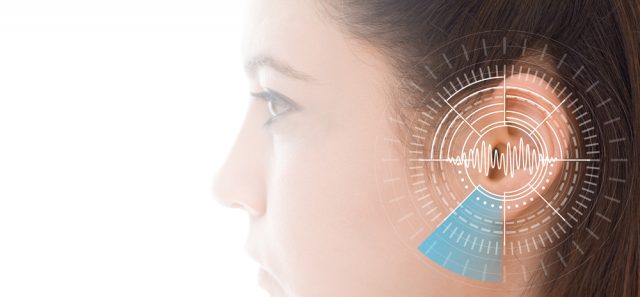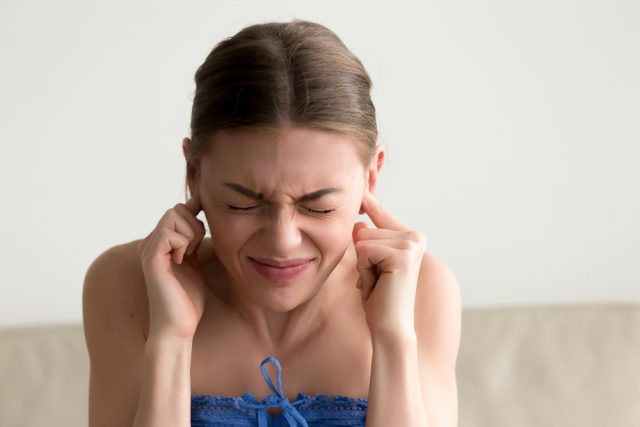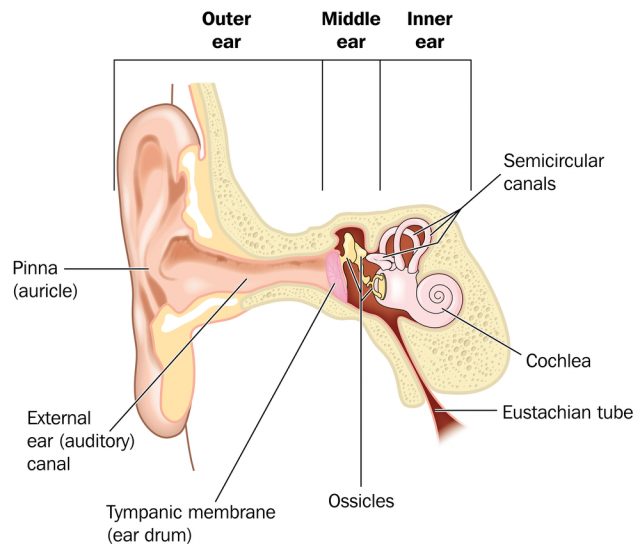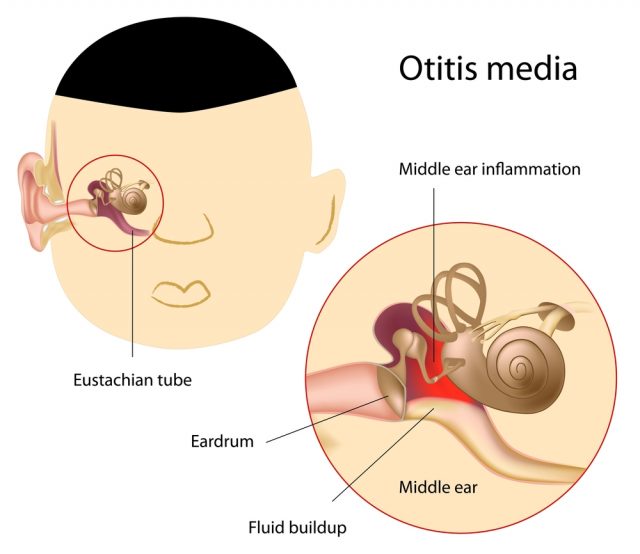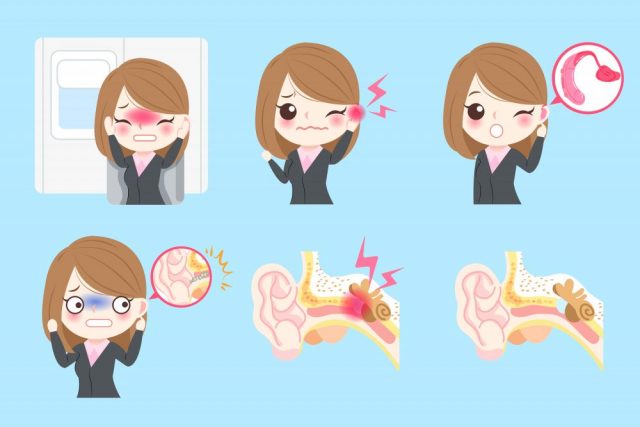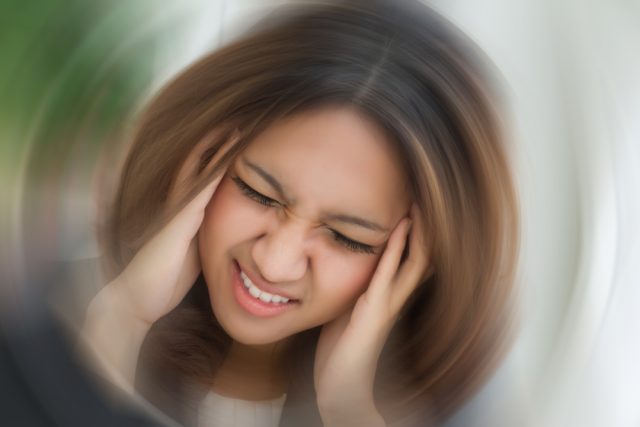Why Are My Ears Ringing?
Introduction
The most common reason there is ringing in your ears is because you have tinnitus. This is the medical term to refer to that ringing in ears. Although ringing isn’t the only sound that tinnitus sufferers hear. There are other sounds that can be heard, such as:
- Roaring
- Buzzing
- Clicking
- Hissing
- Swishing
- Whistling
Commonly, it sounds like wind is passing through the ear canal. However, there is rarely an external source of these sounds. Many call them phantom sounds for this reason. This type of tinnitus is common and referred to as subjective tinnitus. It’s annoying, because only you can hear it. That can make it feel like you’re losing your mind!
Objective tinnitus is caused by abnormal blood vessels in your ear. This causes you to hear the blood pumping through the veins. This is actually a sound that other people can hear as well, if they listen close enough. This type of tinnitus is extremely rare.
Although tinnitus is more common in the elderly, anyone can develop ringing in ears. It can affect one ear or both, often depending on the cause. However, tinnitus is not a diagnosis. It is a symptom of an underling problem. This can be as simple as an ear infection or as complicated as a brain tumor. Many things affect our ears and how we hear!
There is often a pressure in association with the sounds as well.
Tinnitus can be persistent, occurring multiple times in a day. It can also be more obscure. It may be sudden or gradual, depending on the cause. A helpful thing to know about tinnitus is: if you’re ever had it, you’ll likely get it again.
What Causes Ringing in Ears?
Tinnitus is most frequently caused when the middle ear is infected. There are four parts to the hearing system. Each of these parts can be damaged and cause ringing in ears.
- Outer ear
- Middle ear
- Inner ear
- Brain
Tinnitus can be brought on by many causes. In fact, there are too many to list. Instead, we’ll give you the most common causes.
Below you will find the most common medical causes of tinnitus. These causes are often temporary, which means your tinnitus will go away once you’ve taken care of the real issue:
- High blood pressure (diet)
- High cholesterol (diet)
- Anemia (diet)
- Overactive thyroid (doctor’s recommendation)
- Blood flow problems (doctor’s recommendation)
- Excessive earwax, blocking the canal (ear flushing)
- Ear infection (antibiotics)
- Flu (antibiotics)
- Muscle spasms (stress reduction)
- Stress (stress reduction)
- Anxiety (stress reduction, anti-anxiety medication)
- Depression (stress reduction, antidepressant)
- Toothache (dentist)
- Headaches
- Pregnancy
Some medical-related conditions don’t have an easy fix:
- Tumors
- Trauma to the ear head, neck or jaw
- TMJ
- Ruptured eardrum
- Age
Additionally, there are certain lifestyle choices that put individuals at a higher risk for tinnitus. This includes individuals who:
- Listen to loud music in headphones
- Stand too close to speakers
- Frequently attend concerts
- Frequently go out clubbing or to the bar
- Work in a loud environment with no ear plugs
- Work with heavy equipment (jackhammers, chainsaws, tc)
- Frequently travel by air
- Frequently change elevation
- Smoke
- Drink a lot of caffeine
There are also several medications that also cause temporary and permanent tinnitus. When ringing in ears is caused by medication, it is referred to as ototoxicity. Taking too many aspirin tablets in a short period of time can also cause tinnitus, along with other long-term damage.
Tinnitus Diagnosis & Treatment
A simple hearing test is the standard method to diagnosis ringing in ears. This hearing test is often transmitted through earphones and the patient responds according to the given instructions. This determines if the sound is traveling properly between earlobes. If not, the doctor may suggest follow-up examinations. Imaging tests may be required, such as a CT or MRI. These imaging tests will show if there is any blockage in the ear canal causing the problems. If there is any tear, break, blockage or deformity, these tests will show that to the doctor.
Before treating tinnitus, it’s important to know what is causing ringing in ears. You may need to rule out several factors before finally settling on a treatment method. If you’re currently taking any kind of medication, your doctor may advise switching your dosage or the type of medication you’re taking. Especially if your medication is on the list of medications that cause tinnitus.
There are various treatment options for people who experience ringing in ears. Below are a few of the most common tinnitus treatments:
- Drug Therapy
The drugs used to treat tinnitus are antidepressants and anti-anxiety drugs, such as Xanax. There are often side effects to these types of medication, which include intestinal distress (nausea, constipation) and fatigue (loss of concentration, loss of energy). Depending on the cause of your symptoms, you may be prescribed a type of antibiotic to help reduce swelling or infection.
- Noise Suppression Machine
This is a machine meant to mask the ringing in ears with a more soothing sounds. This machine is small, like a hearing aid, and sits inside of your ear. Alternatively, you may choose to purchase a hearing aid. A hearing aid is particularly helpful if you’re having difficulty hearing regular sounds because of the ringing. There is a third option called the cochlear implant. It’s not typically recommended, but you may find it works the best for you. This implant is designed to basically ignore the damaged part of your ear. Ultimately, returning your hearing to normal.
- Lifestyle Changes
Often, stress contributes to the severity of tinnitus. This means your doctor will likely recommend lifestyle changes that encourage relaxation, such as yoga or meditation. Eating healthier is another way to reduce stress. Of course, you can choose to take a stress management course as well. However, if your tinnitus is caused by anxiety or depression you may want to look into cognitive or dialectical behavioral therapy. These are practices that help you to get control over your emotions, which can reduce the ringing in ears.
- Dental Work
There are cases of tinnitus caused by dental problems as well. Often when an individual has tooth pain or a gum infection. Other causes are decaying teeth, wisdom’s growing in or temporomandibular joint disorder. (TMJ). Excessively grinding the jaw can also cause ringing in ears. If this might be an issue, a mouth guard should be worn at night to reduce the impact.
- Physical Rehabilitation
Physical rehabilitative for ringing in ears isn’t common. This is generally used when there is a more serious cause of the ringing. A variety of suggestions might be made for rehab, such as a chiropractor, osteopathy, physical therapy, even surgery. It all depends on the cause.
How To Prevent Tinnitus
Tinnitus effects a lot of people, especially as they get older. Often, the damage in our ears can be traced back to the earlier days of loud music and good times. Once you’ve experienced tinnitus, you’re at a much higher risk for experiencing it again and again. However, you can reduce your risk of experiencing ringing in the ears.
If you haven’t experienced the ringing in ears, you can avoid ever having to. Both by following these tinnitus prevention tips:
- Avoid wearing headphones (or use that at minimal volume)
- Don’t crank the volume on your television or computer speakers
- Limit how much time you spend talking on the phone
- Cover your ears if you’re around heavy equipment and construction
- Invest in ear plugs (not to completely cancel sound, but reduce it)
- Avoid medications that cause or increase the risk of tinnitus
- Schedule regular hearing tests
- Change your diet so you’re not at risk for high cholesterol or blood pressure
- Learn to cope with stressful situations
- Drink caffeine and alcohol in moderation
- Exercise regularly to increase blood flow
Ringing in Ears and Headache
Tinnitus can happen as the result of a headache and a headache can be brought on by tinnitus. These two go hand in hand, since they affect the same areas.
A headache along with ringing in ears can be caused by a few different things:
- Stress
- Sinus infection
- Tooth/gum infection
- Flu
- TMJ
A simple trip to the doctor will be able to tell you which of these is causing the ringing. In the meantime, you can take an over-the-counter tablet, like aspirin, to reduce the headache. This may also help with the ringing. Make sure you follow the dosage instructions though.
Ringing in Ears and Flu
Tinnitus is particularly prevalent in flu cases. This is because the ear canal is largely blocked due to mucus in the passage way. There’s no quick fix to this type of ringing. Luckily, the flu will generally go away after a few weeks. Hopefully your symptoms will as well. If the ringing persists after your flu symptoms are gone, you may want to consider a trip to the doctor. Drink a nice warm glass of chamomile tea. It should help to clear out your passages and soothe the ringing.
Ringing in Ears at Night
When ringing in ears at night is a constant, it can be hard to fall asleep. This is common with tinnitus, but there are methods you can use to get a good night’s rest anyway. One of the best tips is that you should have a “wind down hour”, which refers to shutting down the television and putting away your cellphone for an hour before bed. This helps reduce the strain to your eyes and your head. You may also choose to listen to a white noise machine at night. This will often cancel out the ringing.
Ringing in Ears After Eating
When the ringing in ears occurs after eating, there’s a good chance that there’s something wrong with the jaw. It’s likely a case of TMJ, which causes a stiffness in the jaw. You’ll likely experience a difficulty chewing and a headache as well. Alternatively, ringing in ears after eating could be caused by a tooth infection. This would require a simple antibiotic to fix. A dentist will need to take a look at your mouth to determine the cause.
Ringing in Ears and Dizziness
Typically, ringing in ears isn’t associated with dizziness. If you are experiencing dizziness and a loss of balance as well as the ringing, you may actually be suffering from Meniere’s disease. This disease is known for affecting one ear only. This is particularly a concern if the ringing is sudden. Generally, tinnitus will be gradual or consistent. If it’s sudden and in only one ear, it’s time to see the doctor. You will also feel a fullness, like something is in your ear. Meniere’s disease is a chronic condition. There isn’t really a “cure”, but symptoms can be reduced along with long-term affects.

